Abstract
OBJECTIVES: This investigation sought to test the effectiveness of a statewide ignition interlock license restriction program for drivers with multiple alcohol-related traffic offenses. METHODS: A total of 1387 multiple offenders eligible for license reinstatement were randomly assigned to participate in an ignition interlock program (experimental group) or in the conventional postlicensing treatment program (control group). The arrest rates of these 2 groups for alcohol traffic offenses were compared for 1 year during the ignition interlock license restriction program and for 1 year after unrestricted driving privileges were returned. RESULTS: Participation in the interlock program reduced offenders' risk of committing an alcohol traffic violation within the first year by about 65%. The alcohol traffic violation rate during the first year was significantly less for participants in the interlock program (2.4%) than for those in the control group (6.7%). However, there was no statistically significant difference between these groups in the second year, after the interlock license restriction was lifted. CONCLUSIONS: Ignition interlock license restriction programs are effective at reducing recidivism among drivers with multiple alcohol offenses, at least while the restriction is in effect.
Full text
PDF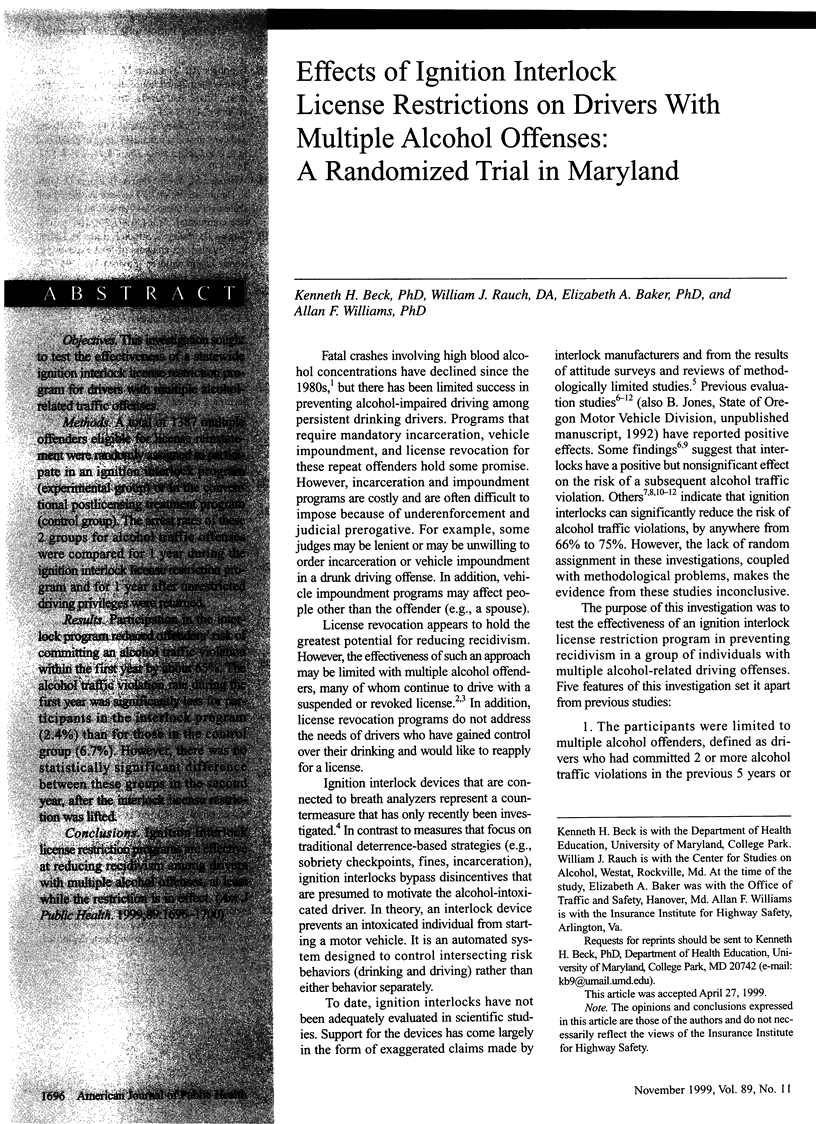
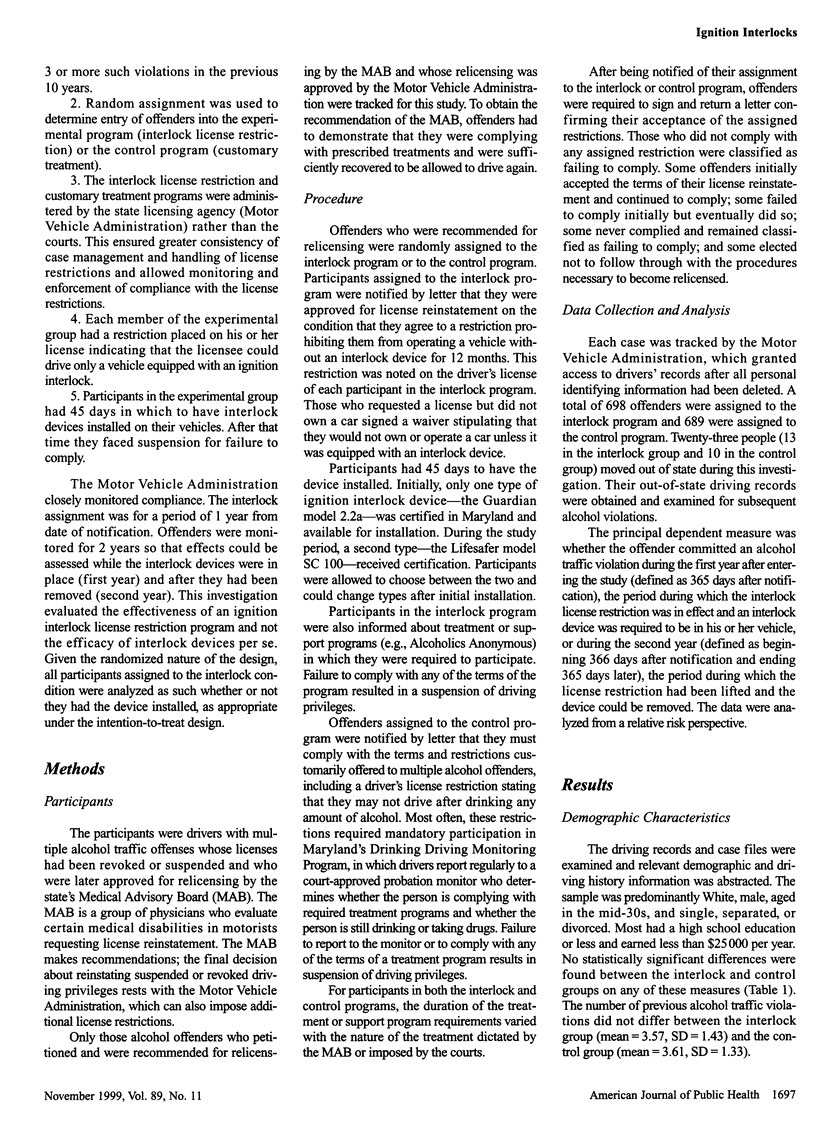
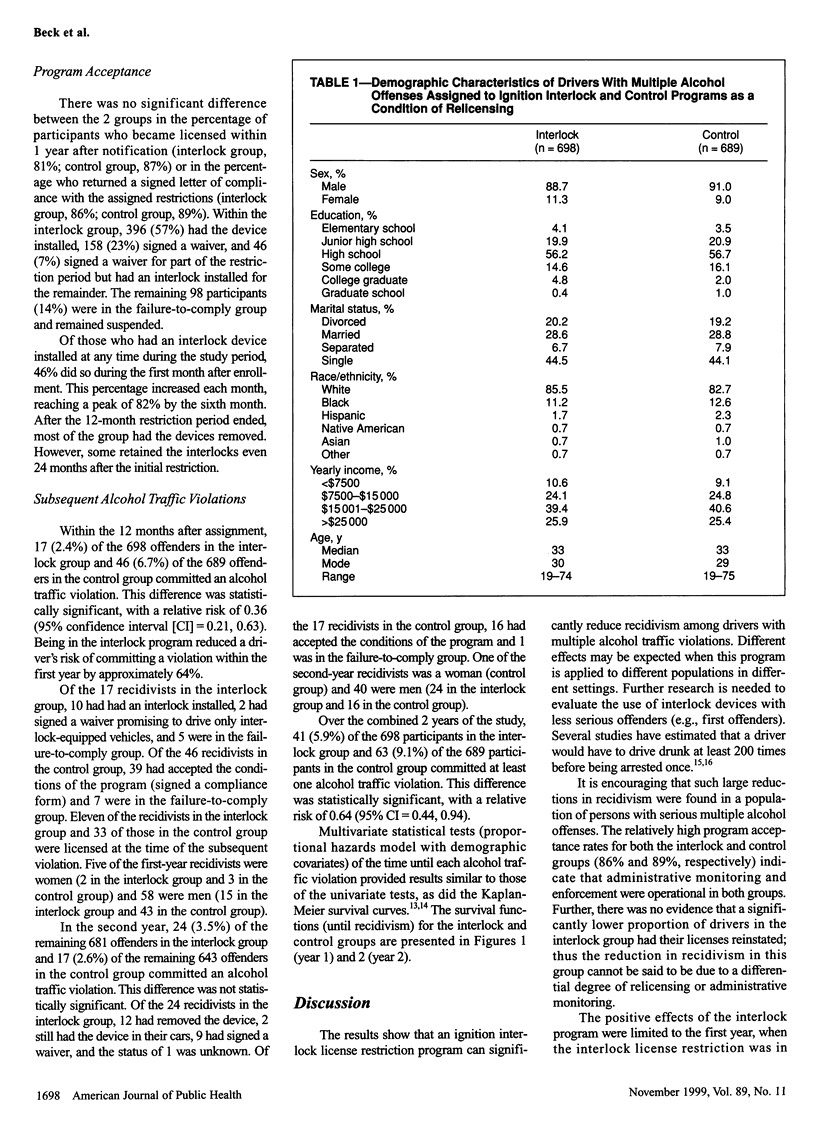
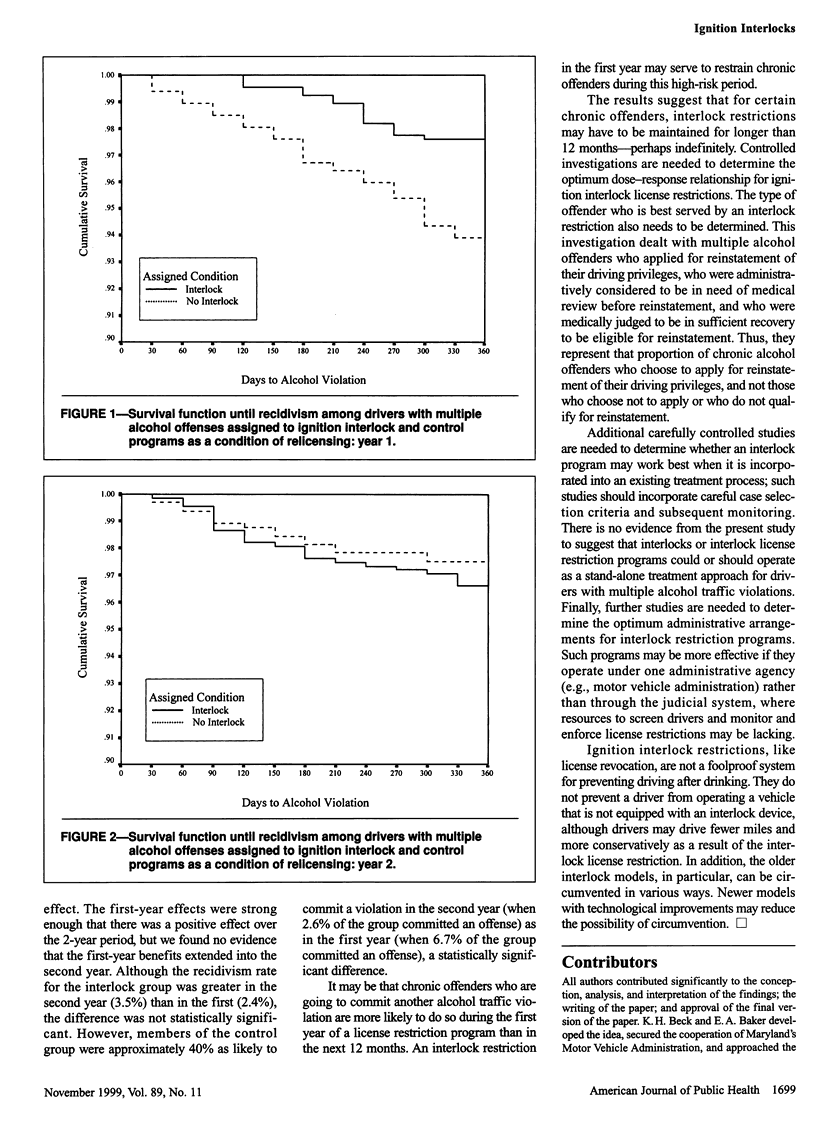
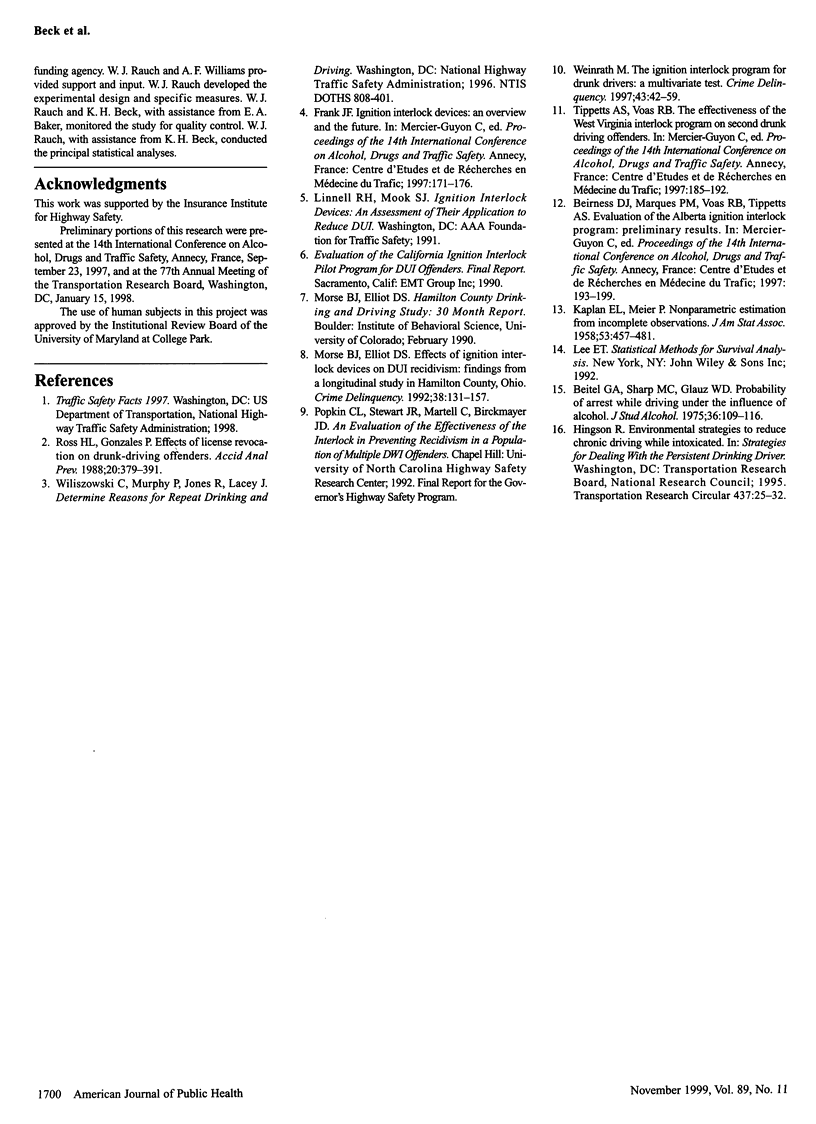
Selected References
These references are in PubMed. This may not be the complete list of references from this article.
- Beitel G. A., Sharp M. C., Glauz W. D. Probability of arrest while driving under the influence of alcohol. J Stud Alcohol. 1975 Jan;36(1):109–116. doi: 10.15288/jsa.1975.36.109. [DOI] [PubMed] [Google Scholar]
- Ross H. L., Gonzales P. Effects of license revocation on drunk-driving offenders. Accid Anal Prev. 1988 Oct;20(5):379–391. doi: 10.1016/0001-4575(88)90020-6. [DOI] [PubMed] [Google Scholar]


